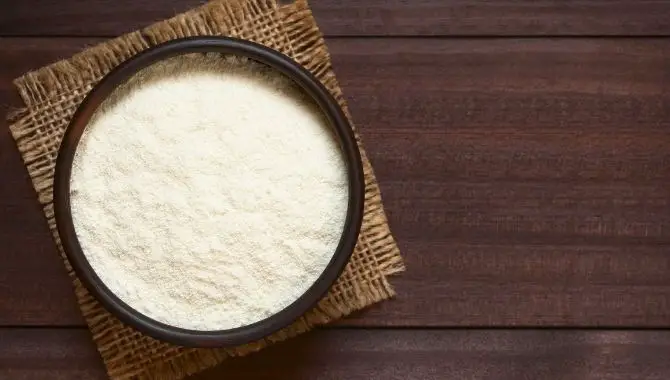The vegan diet can be quite strict. I cannot emphasize enough the importance of reading the ingredients listed on the package of every food before purchase to ensure everything is 100% vegan. But determining vegan-friendly foods is not always an easy task, especially with processed foods, as they contain ingredients that you may not be familiar with.
You have probably seen Thiamine Mononitrate on the package of your vegan foods. Well, that’s because it’s added to different kinds of foods as a source of vitamin B1. Stay with me as I take you through everything you need to learn about this ingredient.
Is Thiamine Mononitrate Vegan? Yes, Thiamine Mononitrate is definitely vegan-friendly. It is found in several plant foods but can also be produced via chemical synthesis by removing a chloride ion from thiamine hydrochloride and mixing it with nitric acid. In fact, a number of thiamine mononitrate supplements that are sold today are specifically labelled ‘vegan’.
Vitamins are considered essential nutrients, which is why you hear about them quite a lot in today’s media. And today we are going to take a closer look at vitamin B1, also known as Thiamine, which is just as beneficial as the other popular vitamins A and C. Thiamine mononitrate is the synthetic form of vitamin B1 and it’s often added in processed cereal products for reasons I will cover later on.
Stay with me as I take a closer look at this ingredient and help you understand how it is produced, its role in your favourite foods, and more so you can make an informed decision about including it in your vegan diet. Without much delay, let’s get right into it:
What Is Thiamine and What Does It Do?
Thiamine is one of the B vitamins and is naturally found in various foods. Since it’s a water-soluble vitamin, it washes out of the body in urine and doesn’t accumulate in the body like the fat-soluble ones. Thiamine is essential for glucose metabolism as it helps the body to convert carbohydrates to energy. Other benefits include:
- Regulate the flow of electrolytes in and out of the cells of your nerves and muscles
- Breakdown of alcohol
- Aid in digestion to prevent digestive problems
- Support normal growth and development
- Metabolizing amino acids
- Prevent diseases like beriberi
- Boost the immune
- Create adenosine triphosphate (ATP), which is responsible for carrying energy within cells
- Health professionals even give thiamine shots to manage a memory disorder called Wernicke’s encephalopathy syndrome.
Thiamine is an important vitamin that is quite beneficial to the human body. We need a continuous supply of it since it’s not stored in the body; it’s carried through the bloodstream and whatever the body doesn’t use is eliminated in urine. In fact, health experts haven’t set a specific upper limit for consuming thiamine.
Thiamine occurs naturally in various foods, including cereal grains, nuts, yeast, beans, fruits, vegetables, and even animal products. The one that comes from animals is called thiamine triphosphate and not thiamine mononitrate, and today we’re talking about the latter.
Heating, cooking, boiling, or processing these foods destroys thiamine. Given its importance in the body, as described above, manufactures are forced to add it back to processed cereal products, along with some other vitamins, to enhance their nutrient content. This is especially common in breakfast cereals, white rice, or products made with white flour.
We already know that Thiamine mononitrate is the synthetic form of vitamin B1, but how exactly is it made? A short explanation is that it is derived from thiamine hydrochloride and thiamine hydrochloride comes from thiamine sulphate.
Thiamine Mononitrate VS Thiamine Hydrochloride
As you read about vitamin B1, you will come across these two terms. That’s because they are both synthetic forms of vitamin B1 but are manufactured by adding different groups of thiamine. They have different physical and chemical properties, as well as molar weight but the most identifiable difference is that Thiamine mononitrate is non-hygroscopic while the other is hygroscopic.
From all the above information, it’s evident that no animal-based ingredients go into the formation of Thiamine mononitrate. Therefore, if you find it listed as one of the ingredients in otherwise vegan-friendly products, then you can enjoy that food without any vegan guilt.
Do Vegans Experience Thiamine Deficiency?
The recommended daily allowance of thiamine is about 1.2mg but pregnant or breastfeeding women should consume 1.4mg daily. There’s no set upper limit for daily thiamine intake. Some people like those involved in strenuous physical activity may have a higher need for thiamine.
Thiamine is much plentiful in the liver, pork, and other meats. Since vegans generally consume a plant-based diet, they may end up consuming less thiamine than those who eat meat.
A lot more vegans got thiamine deficiency in the past but thanks to thiamine fortification in foods, most of us don’t need to worry about it any longer. However, people with cancer, HIV, morning sickness, a poor diet or one that is high in processed grains, and alcoholics, are at risk of thiamine deficiency. Other conditions that may result in vitamin B1 deficiency are bariatric (weight loss) surgery, malabsorption conditions, and anorexia. As you can see, thiamine deficiency has nothing to do with being vegan but rather an individual’s general health.
Early symptoms might include loss of appetite, muscle weakness, blurry vision, reduced reflexes, irritability, fatigue, and shortness of breath among others. A severe thiamine deficiency can, however, result in beriberi – a disease that takes many forms (dry, wet, cerebral, and gastrointestinal beriberi) and affect many systems in the body. Other serious symptoms include mental problems like confusion and short-term memory loss and cardiovascular symptoms like an enlarged heart.
Vegan Thiamine Supplements
Individuals on a regular healthy diet, including vegans, infants, and pregnant or breastfeeding women, can get enough thiamine by consuming a variety of foods. Vegan foods that are a natural source of thiamine include oranges, nuts, seeds, peas, yeast, legumes, etc. Vegan foods that are often fortified with thiamine include flour, pasta, bread, rice, processed cereals, and veggie burgers.
For those who are suspected or confirmed to have a thiamine deficiency, health professionals recommend thiamine supplements. Thiamine supplements are generally considered vegan as they don’t make use of any animal-based ingredients. There are even some that are labelled ‘vegan’ for easy identification. Some of the best thiamine supplements include:
- Solgar – Vitamin B1
- Solaray B1 Supplement
- Nutricost Vitamin B1
- Nature Made Vitamin B1
- Swanson Vitamin B-1
- Source Naturals Vitamin B1
- NOW Foods Vitamin B1
- BulkSupplements Pure Thiamine Mononitrate
- Mason Vitamins B-1, and much more
These supplements come in children’s chewable, softgels, lozenges, tablets, and liquid drops. Intramuscular or intravenous injections may also be administered in the case of severe deficiency.
Medical experts recommend different doses of thiamine supplements, depending on the level of deficiency. For this reason, consult your physician before starting new supplements.
Is Thiamine Mononitrate Safe?
Thiamine Mononitrate is generally recognised as a safe food additive. As mentioned earlier, there’s no upper limit that has been officially set for thiamine intake, so overdose is practically impossible. Also, excessive thiamine is removed from the body through urine. Even so, I wouldn’t recommend you go crazy on it as it’s possible to have too much of a good thing. Consuming very high doses of thiamine can cause a few side effects such as nausea, restlessness, sweating, itching, flushing of the skin, blue lips, etc. It’s been noted that these symptoms generally remain mild and will diminish over time.
Secondly, thiamine can have interactions with certain drugs. For starters, it can affect the performance of antibiotics, as well as nervous system medications and thyroid medicines. It can also interact negatively with drugs used for birth control, cancer, heart conditions, and Alzheimer’s disease.
Last, but not least, mild to a severe allergic reaction is possible in certain people and symptoms may include swollen face, low blood pressure, difficulty breathing, chest pain, coughing up blood, anaphylactic reactions, and even death. This is especially possible after repeated intravenous infusions but also possible for oral supplementation (though rarely). If you experience any of the serious side effects after taking thiamine supplement or eating foods that contain thiamine, you need to seek emergency treatment.
When you see this ingredient listed in your food products, it’s a good thing. But perhaps you should consult with your local doctor before you start taking thiamine supplementation.
Welcome to VeganClue - My name is Robert Van De Ville and together with my team we spent hundreds of hours researching the most relevant topics for Vegans and non yet Vegans. Are you looking for more information about Veganism, animal welfare, diet, health, and environmental benefits of the Vegan lifestyle? You are in the right place! Enjoy the site.


